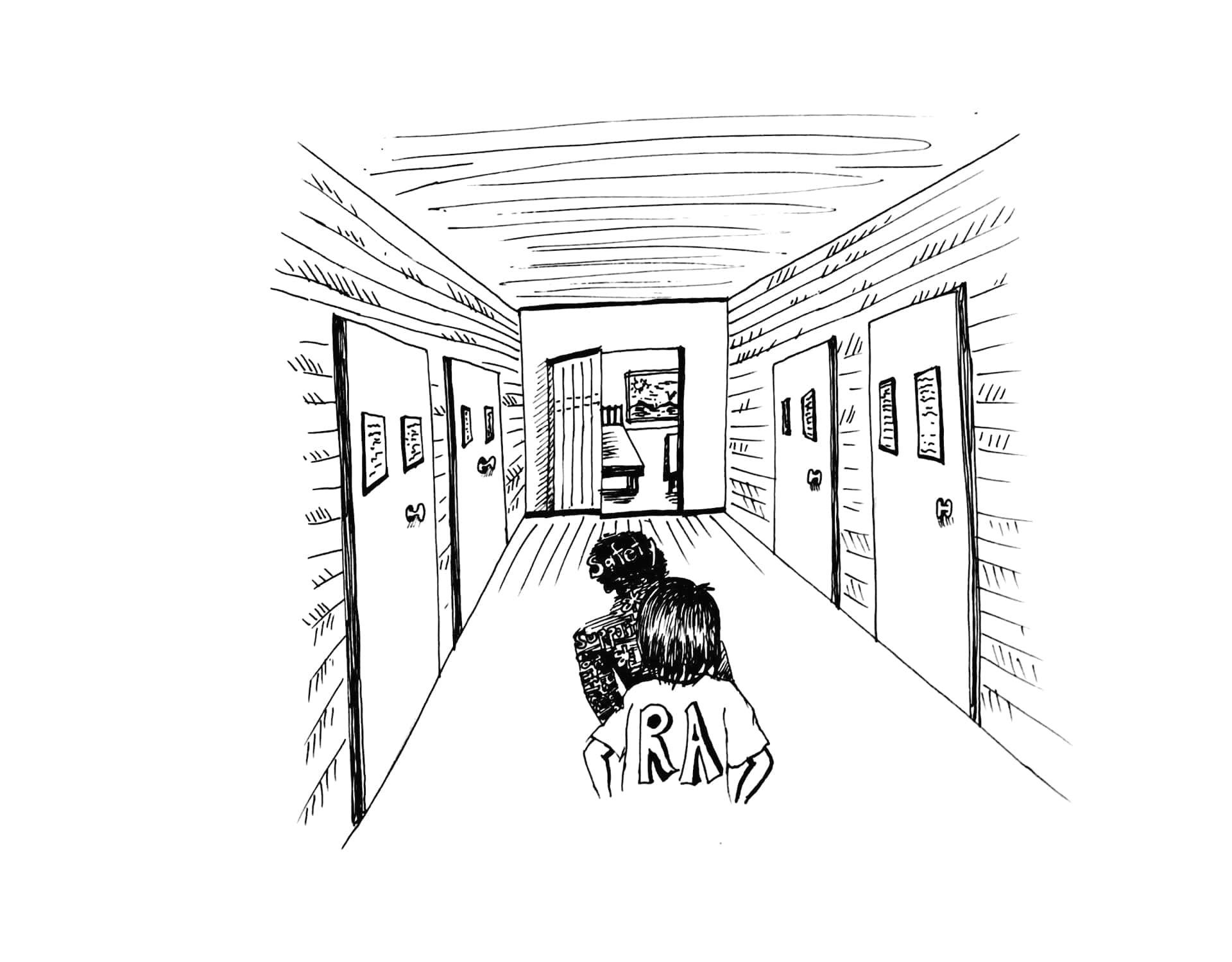Being a resident advisor (RA) is one of the most difficult jobs a student can have while in college. We are the first people to arrive on campus every year and the last to leave, and in the interim we are responsible for the safety and well-being of each and every resident living in our hall. We are first responders to all types of crises. We decorate our buildings, put on programs and try our best to create welcoming communities for every student on campus to enjoy — all while maintaining full academic schedules.
As an RA, I also consider my job to be among the most rewarding parts of my time at Occidental. I have the opportunity to develop valuable skills, such as crisis management and conflict mediation while working with a supportive staff of peers and professionals in Residential Education and Housing Services (REHS). I love my job, and I would not trade my work as an RA for any other job on campus.
However, whenever I talk to other students about the work of an RA, they reliably respond in in one of two ways: “You don’t get paid enough,” or, “Man, ResEd sucks.” However, when you examine all of the available information, neither of these statements holds up.
First, let us address the persistent notion on this campus that RAs are underpaid. Between summer and winter training periods, duty, programming, weekly meetings, office work and other miscellaneous duties, an RA will spend approximately 868 hours per academic year working. As compensation, RAs receive a single room and meal plan D, plus a stipend that increases by $100 every year that an RA continues in the role. Some RAs argue that because the money for room and board is credited to our bill instead of being paid to us directly, it shouldn’t count as part of our monetary compensation; however, for some RAs, myself included, that money is the difference that makes it possible for me to attend Occidental. All told, the total comes to an average of $14,768 per year. This means that over the course of three years, an RA will make approximately $17 per hour. While I and other RAs might wish we made more money, our hourly rate is significantly higher than $12, the current minimum wage for Los Angeles.

The belief that RAs are not being paid fairly for our work stems from a general campus-wide dislike of REHS. Three years ago, The Weekly published a story that shone a light on many of the issues with ways that RAs are hired, trained and evaluated by REHS. This article unleashed a torrent of public criticism against the department, particularly targeting some of the professional staff members named explicitly. However, none of the employees in the article work for REHS anymore, and every single RA, named and anonymous, has since graduated. In fact, since the date of the article’s publication, there has been a series of new hires in the professional staff, and only a handful of people from that period are still REHS employees.
Some of the criticism toward the department is warranted; just this past year, REHS came under fire for not adhering to a student vote regarding room draw policy, and many students strongly disagreed with some of the department’s policies, such as the lack of approval for junior students seeking off-campus housing. However, many students seem to have an indiscriminate feeling of hatred for the department as a whole, rather than any particular policies — a view that is as lacking in nuance as it is uninformed.
Moreover, REHS has changed many of the policies about which students and RAs have expressed grievances — RA training is now a full week shorter, the reapplication process for the position has undergone adjustments and room draw policies have been changed to reflect the results of last year’s vote. The department has also shifted policies to accommodate students’ requests for more gender-neutral housing options and implemented a permanent substance-free residence hall. Many of the other changes that students would like to see, such as the reintroduction of cot rental and bed lofting, are out of REHS’s control, and yet the department still takes nearly all of students’ blame.
Though positive change within the department is happening, students at Occidental remain dissatisfied. On the one hand, sure, we should be able to express criticism with a reasonable expectation that it be addressed in a timely and effective manner. Where we as a student body fail spectacularly lies in recognizing that lasting, impactful institutional change cannot and should not happen overnight. It is understandable to want immediate solutions to the problems we experience every day, but there were generations of students who came before us and there will be more who come after. Our goal should not be to make Occidental exactly what we want it to be right now, but rather to lay the groundwork for future students by continuing to put in the effort and to hold the school accountable for real change. This is how we move forward.
If you think the job of an RA sounds hard, imagine what it must be like to be a professional in REHS. They come to work every day for a department that most students only ever criticize. They have dedicated their working lives to providing a positive residential experience for us as we begin our first forays into our lives as full-fledged adults. You do not have to like every decision they make, but you do have to give them a chance.
Harper Hayes is a senior Spanish and Psychology major. She can be reached at hayesh@oxy.edu.
![]()































